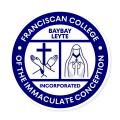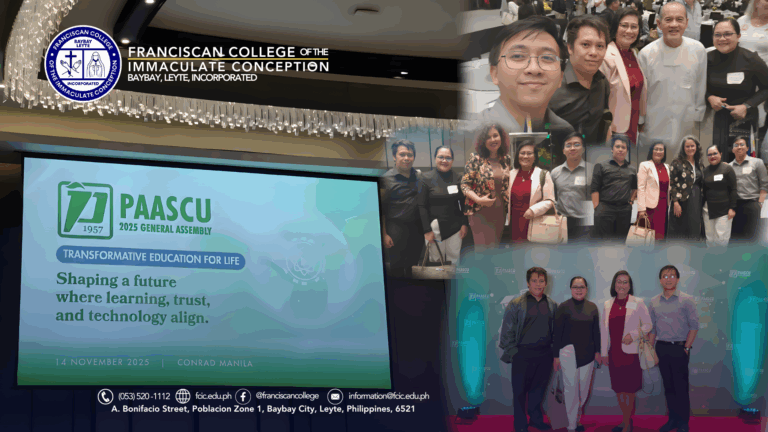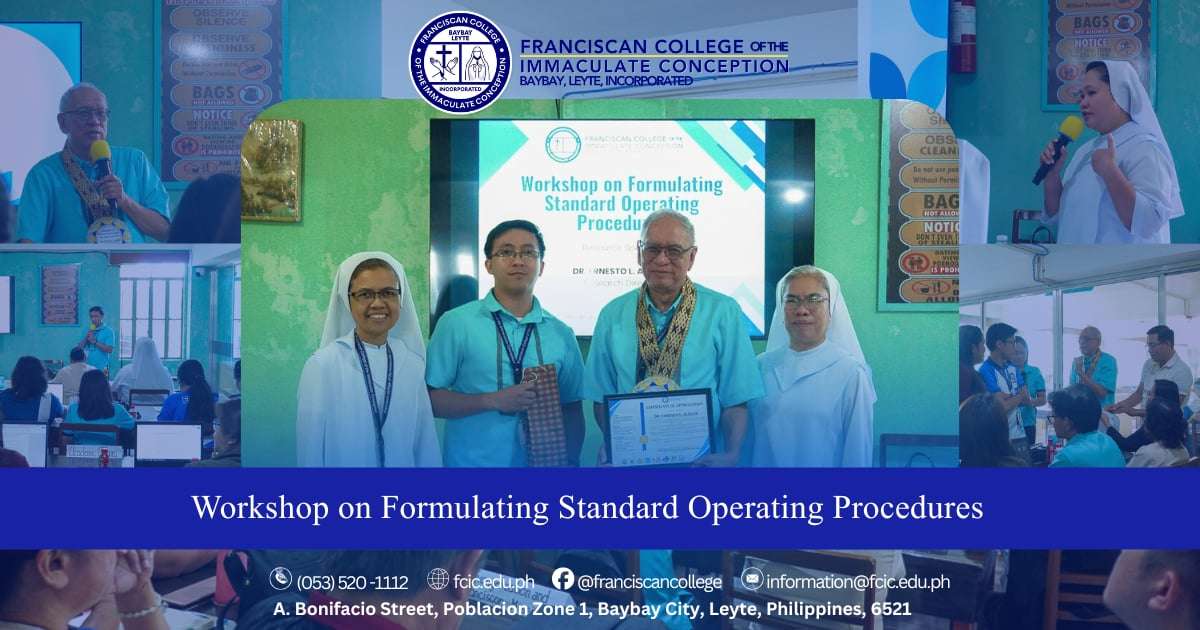The Franciscan College of the Immaculate Conception (FCIC) was ably represented in the PAASCU 2025 General Assembly by Dr. Ma. Victoria A. Gonzaga, Mrs. Blanchie G. Torcino, MAEd, Mr. Jie R. Lim, MACDDS, and Mr. John Melchor Q. Libres, MAEd, who took part in the full-day discussions focused on quality assurance, transformative learning, and responsible innovation. Held on November 14, 2025, at Conrad Manila, the assembly gathered academic leaders and accreditors under the theme “Transformative Education for Life: Shaping a future where learning, trust, and technology align.” The day opened with a keynote address from the OIC Assistant Secretary, Dr. Jocelyn Andaya on “Strengthening Transformative Education: The Department of Education’s Vision for the Future.” In her message, she emphasized the country’s ongoing educational reforms strengthening curriculum relevance, supporting teacher capability-building, and leveraging technology to create a more inclusive, future-ready learning ecosystem. She stressed that transformation must be anchored on both competency and compassion, calling on schools to become active partners in building an agile and equitable education system.
Following the morning announcements, participants engaged in a thought-provoking session led by Dr. Kathryn Sutherland of Victoria University of Wellington titled “Information, Formation, and Transformation.” Dr. Sutherland examined the deeper purpose of education, arguing that it must move beyond information transmission toward values-based formation and lifelong transformation highlighting “Trust and Reciprocity” in the realm of education. She underscored that learning institutions must intentionally cultivate reflective, ethical, and socially responsible individuals who can thrive amid complexity. Her insights offered FCIC delegates a reaffirmation of the college’s mission to integrate academic rigor with Franciscan values and character formation.
In the afternoon, Prof. Anca Greere of the British Accreditation Council facilitated Learning Session 2, focusing on how accreditation functions as a catalyst for institutional excellence. Her talk, “Accreditation as a Catalyst for Transformative and Future-Ready Education,” emphasized that quality assurance should be viewed as an opportunity for growth rather than a compliance burden. Prof. Greere highlighted global trends showing how data-driven decision-making, consistent documentation, and feedback loops enhance school performance and sustainability. For FCIC, these insights provide timely guidance as the institution continues to strengthen its internal quality assurance systems.
The final presentation, Learning Session 3, was delivered by Fr. Johnny C. Go, SJ, Dean of the Gokongwei Brothers School of Education and Learning Design at Ateneo de Manila University. His session, “AI, Teaching-Learning, and Quality Assurance,” explored the ethical and pedagogical implications of using artificial intelligence in education. Fr. Go explained how AI can support personalized learning, strengthen assessment validity, and enhance institutional management, but also cautioned schools to uphold transparency, fairness, and human-centered judgment. He even encouraged educators to put in practice the mission of education which is to “form first-class human persons who embrace all the processes of being human – thinking, feeling, learning, creating, relating, loving, even erring – in order to make a difference in the world”. His talk aligned closely with PAASCU’s newly released Guidelines on AI Use in Accreditation, which will influence how institutions prepare documentation and evidence beginning 2025.
Thus, the discussions throughout the assembly echoed a profound philosophical message: that education is not merely a technical endeavor but a human one. While systems, tools, and policies evolve, the heart of learning remains rooted in the formation of persons capable of wisdom, discernment, and ethical action. The integration of AI, modern accreditation practices, and transformative pedagogy challenges schools to balance innovation with humanity to be technologically advanced yet deeply grounded in values.
For FCIC, the assembly reinforced a timeless truth: that education becomes transformative only when it shapes the mind, nurtures the spirit, and inspires service to others. As the institution aligns with new PAASCU guidelines and emerging educational demands, it carries forward its Franciscan identity committed not only to excellence but also to compassion, humility, and the pursuit of truth. These philosophical underpinnings guide FCIC as it continues its mission of forming learners who are not just competent professionals but persons of conscience, integrity, and purpose.
By JIE R. LIM, MACDDS – Quality Assurance Officer







